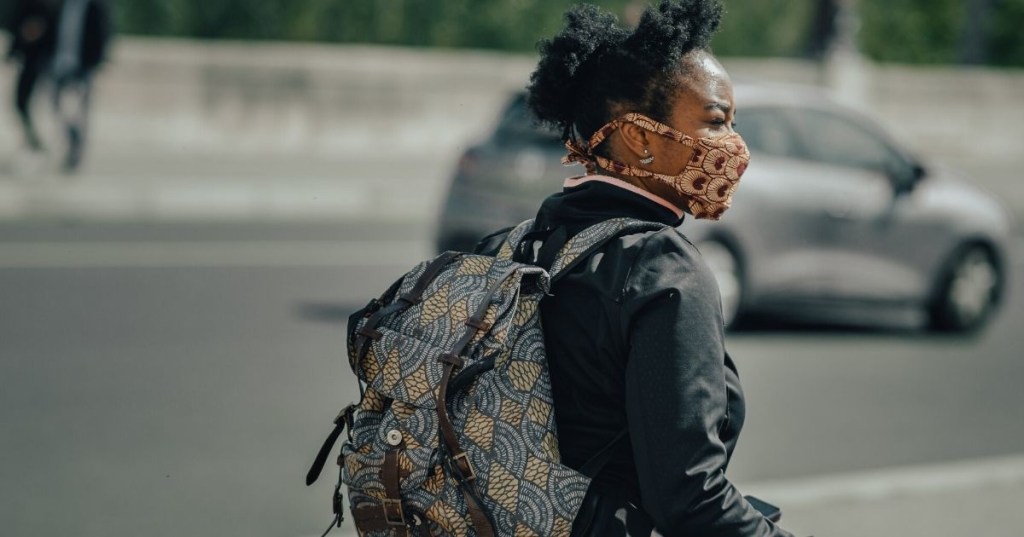In the early days of California’s shutdown, I read diary entries from the 1918 Spanish Flu pandemic. The entries portrayed many things; fear, despair, anxieties…the same things I was seeing every day on my social media.
My Facebook was filled with commentary and experiences from Black people, women, LGBTQ+ folks, and other diverse groups. One friend had a fever of 102 and a vicious cough, another was sheltering-in-place with her children while working from home, and yet another friend had lost a job opportunity. Would history remember their experiences? Would anyone remember how they felt, what they feared the most, what they were hopeful about?
The Internet has given diverse communities outlets to express ourselves for the world. We make people laugh through TikTok, start engaging conversations on Twitter, and document our dog’s antics on Facebook. However, as a historian, I look at all of this material and wonder: who is organizing all these narratives? In 100 years, we may have archived the social media of MJ Rodriguez, Cardi B, Billy Porter, Hillary Clinton, and Anthony Bourdain, but their lives are not representative of the majority. Most of us will not ever be a presidential nominee, win an Emmy, or be on the front of magazines. And while I am not against recording celebrities, I believe that we can learn the most about a historical event from those who are never given the spotlight.
Historical narratives are often framed around the experiences of straight white men. As a Black woman thinking about future history books, I felt anxious that stories like the ones I saw on my Facebook would never be told because they would not be considered important. I could not let my family and friends be forgotten by history. With that determination set in my bones, I began assembling an oral history project, The #DocumentingCOVID19 Project, aimed at recording my communities.
Every week, I interview people to assure they will not be forgotten by history. I am recording the stories of people living through the COVID-19 pandemic so future generations will know how diverse communities and women survived. Since April, with the help of many supportive friends, I have interviewed 23 people from all walks of life: CEOs, hairdressers, mothers, teachers, COVID-19 survivors, community center workers, and government employees. Within these groups is even more diversity: Black, Indigenous, LGBTQ+, Jewish, people with disabilities, etc. In each interview, I ask people about their experiences during this pandemic as it relates to their identities.
For example, when speaking with Black mothers, who often give “the talk” about the police, I ask how they navigate a new talk… about COVID. For teachers, I ask about their concerns over what they can cover through virtual learning and the preparedness of future students. For people living with disabilities, we talk about the experience of watching large companies suddenly instituting working from home for able-bodied people, something disability advocates have been demanding for years. The records created by my interviewees gives a nuanced look at the pandemic: not everyone is making sourdough starters and perfecting their brownie recipe. Many people from diverse communities are afraid, suffering, but also showing a steel resistance to a pandemic that puts them most at risk.
Recording the narratives of diverse communities is essential because the nuances they give disrupt historical myths. One of my favorite things to do is read through primary sources in archives. Recently, I came across former slave narratives collected in the 1930s by Professor John B. Cade of Southern University and A&M College. Professor Cade and his interviewers traveled around the Jim Crow South, collecting the memoirs of former slaves. The power of these slave narratives is that they debunk many of the myths we have created about slavery. When someone tells me about how “slaves were usually treated well”, I will now always share the story of Florence Bailey, who testified that slaves on her plantation were “branded by cutting ashes into their skin.” It is hard to stand by your belief that slavery was only “a bit bad,” when the voices of survivors say the exact opposite.
As I look ahead to the years that will follow this pandemic, I can already see some of the myths that will be created: it was hysteria created by the media, it was a Democrat hoax, it was just a cold, etc. While historical myths are created in part to organized political following in the present, they also occur because people do not know their history. It is my hope that the oral histories collected during this pandemic by researchers across the world will assure diverse communities are not forgotten. That our stories are not forgotten. That in a way, the work being done now, by historians and researchers can serve as a Mythbusters time capsule for future generations.
COVID-19 takes more lives each day and we do not have a cure. But we do have voices. Voices that recall the devastation, fear, and also the hope. One of the last questions I ask my interviewees is what their feelings about the future are. It has surprised me, after almost an hour of describing the exhaustion, anxieties and frustrations that the most common answer is “I am hopeful.”
When they write the history of this pandemic, I want the world to know that despite everything we faced, we held tightly to hope. And if anyone doubts this, all they need to do is listen to the voices we have saved, telling our stories, preserved so our great-grandchildren will know how we survived.
Nikki Brueggeman is a writer and poet based in Southern California where she focuses on the subjects of Blackness and history. She can be followed on Twitter @warriornikki.




























